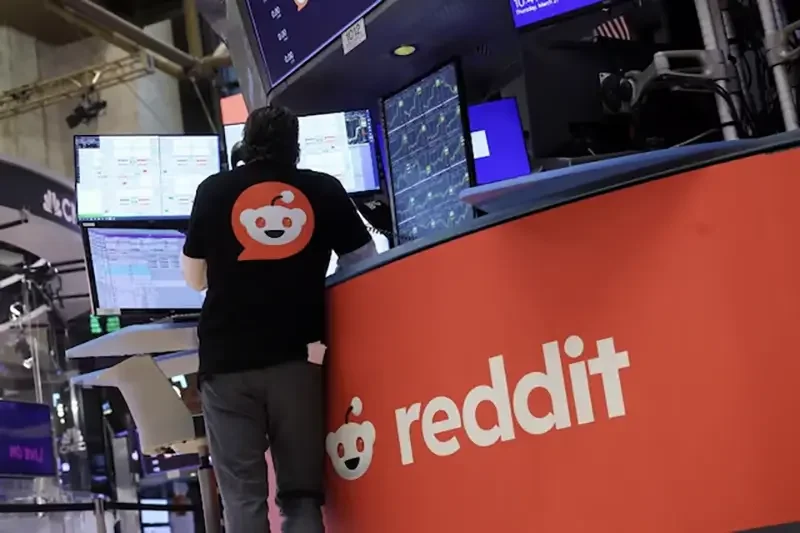Article Directory
The Bull Case Looks Bulletproof
On paper, Reddit’s third quarter was an unqualified masterpiece. The numbers don’t just speak for themselves; they shout from the rooftops. Revenue clocked in at $584.91 million, smashing the consensus estimate of roughly $550 million. That's a 68% year-over-year growth clip. Earnings per share hit $0.80, a figure that left the anticipated $0.52 in the dust. The stock, quite naturally, reacted with a surge of over 17% in after-hours trading, prompting headlines like Reddit Stock Surges 17% After Q3 Earnings Beat Expectations. You could almost hear the champagne corks popping on Wall Street.
The user metrics, the lifeblood of any social platform, tell a similar story. Global daily active users (DAUs) jumped 19% to 116 million. The company is successfully monetizing this base, with global Average Revenue Per User (ARPU) climbing an impressive 41% to $5.04. The forward-looking guidance was just as rosy, projecting fourth-quarter revenue and adjusted EBITDA that both sit comfortably above analyst forecasts.
This performance has the analyst community in near-unanimous agreement. In the last several months, we’ve seen 11 firms issue buy ratings on the stock. Zero have issued sell ratings. From Needham to Citigroup to Morgan Stanley, the sentiment is clear: Reddit is a growth story hitting its stride. They point to new AI initiatives like Reddit Answers and an expanding advertising toolkit as evidence of a company building a durable monetization engine. It’s a clean, compelling narrative. And if this were the only data available, the investment case would be an easy one to make.
A Discrepancy in the Data
And this is the part of the analysis where I find the narrative begins to fray. While the public-facing numbers and Wall Street commentary paint a picture of unbridled optimism, a different, more discreet dataset suggests a profound lack of conviction from the very people who should have the most faith in the company’s future: its own executive team.

Over the past six months, insiders at Reddit have executed 321 open-market trades. Of those, the number of purchases was zero. The number of sales was 321.
Let that sink in. This isn't a mixed signal; it's a monolithic one. We’re not talking about minor offloading for tax purposes or diversification. We are looking at a systematic, top-down liquidation of personal holdings. CEO Steve Huffman sold 404,817 shares for an estimated value of nearly $60 million—to be more exact, $59,755,423. COO Jennifer Wong unloaded 282,486 shares for over $54 million. The Chief Technology Officer, Chief Financial Officer, Chief Accounting Officer, and Chief Legal Officer have all been selling, collectively cashing out tens of millions more.
This presents a glaring contradiction. It’s like watching the captain of a ship give a rousing speech to the passengers about the vessel's unsinkable design and glorious destination, all while quietly selling his personal stake in the shipping company and lowering a private lifeboat into the water. The public statements project confidence; the private financial decisions suggest something else entirely. Why would a leadership team, fresh off a blockbuster quarter and issuing bullish guidance, be systematically reducing their exposure to the company's upside? Is this simply a case of post-IPO liquidity, where founders and early employees are finally able to realize their gains, or does it signal a belief that the stock's current valuation represents a peak? The data on the SEC forms doesn't provide a motive, only a pattern. And the pattern is unambiguous.
The market seems to be listening to the press releases, but I’ve always found that the actions of insiders are a far more reliable indicator of a company’s long-term prospects. These executives have perfect visibility into the internal data, the competitive landscape (which includes headwinds from Google's algorithm changes), and the true sustainability of their user growth. While the quarterly report was strong, it did note a fifth consecutive period of slowing DAU growth, a deceleration that investors can’t afford to ignore. The question we must ask is simple: What do they see that the rest of us don't?
Watch What They Do, Not What They Say
At the end of the day, we are left with two conflicting datasets. The first is a stellar quarterly report, full of backward-looking triumphs and optimistic forward-looking statements. The second is a stark record of insider transactions that screams caution. My analysis suggests that while a single quarter can be spectacular, the sustained, one-sided selling from the entire C-suite is a far more powerful signal about the perceived long-term value of the company. The hype is about the 68% revenue growth. The reality might be in the 321-to-0 sell-to-buy ratio. One is a headline; the other is a verdict.
